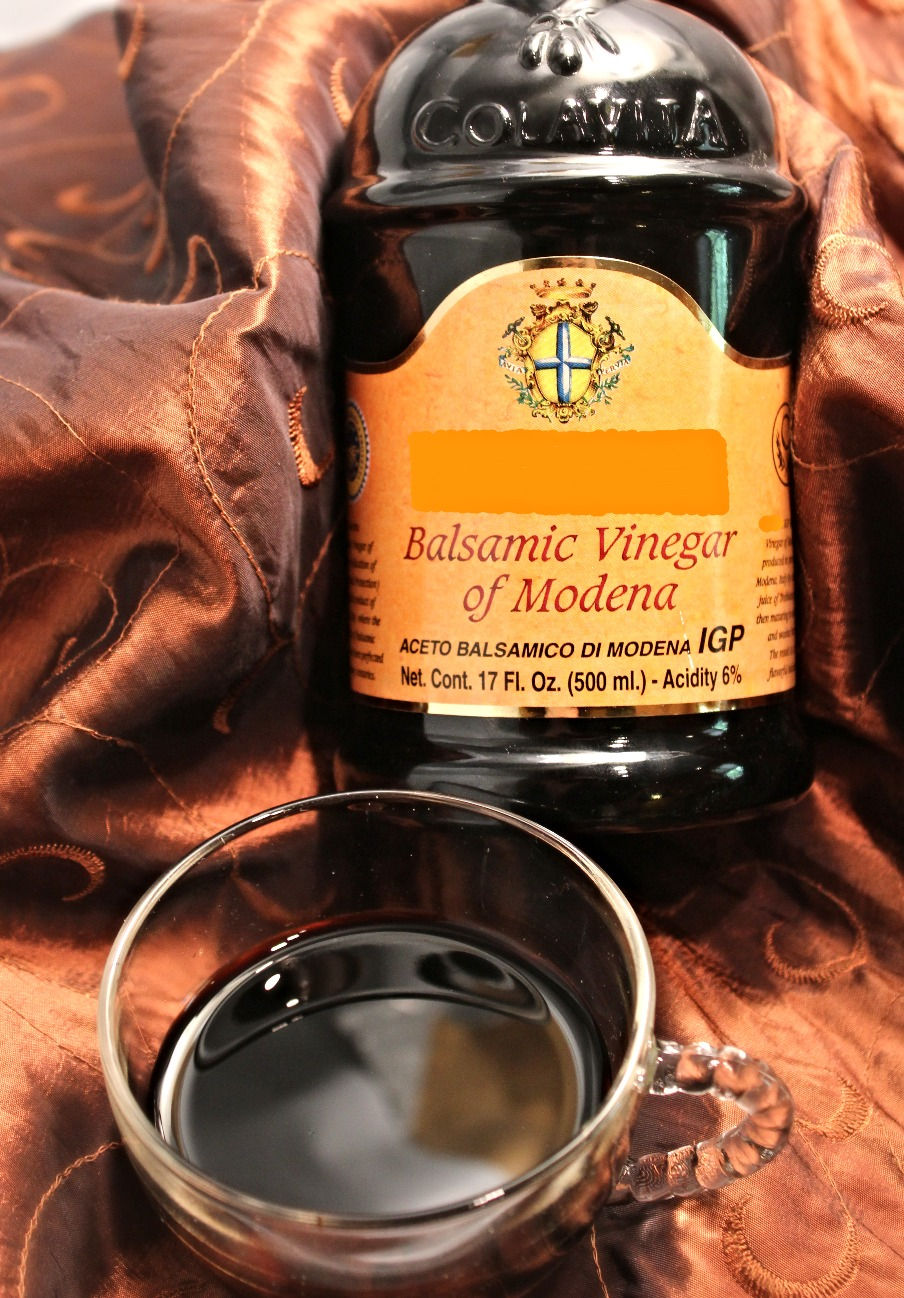Ingredient Spotlight: Balsamic Vinegar
- Syndy Sweeney

- May 21, 2016
- 2 min read

For me, there is only one “black gold”. No, I’m not talking about oil. It’s balsamic vinegar.
Despite being syrupy, balsamic vinegar doesn’t contain any balsam (sap). Nor is it related to balsa wood. The origin of the name (from Ancient Greek and Latin) simply means balm—a thing that cures or restores.
And that’s how I look at balsamic vinegar: it’s a balm for the palate. It’s rich and sweet and yet tangy enough to round out other flavors with an acidic pop.
But not all balsamic vinegar is created equal. There’s the good stuff. The really expensive stuff. Costing up to $400 bottle, this is the kind of vinegar where only a precious drop or two is offered to a piece of cheese or a steak.
This balsamic vinegar is called Traditional Balsamic Vinegar and it’s only produced in Modena or Reggia Emilio, Italy. In Italian, it is labeled as Aceto Balsamico Tradizionale di Modena or di Reggia Emilio. Made by reducing pressed grapes (Lambrusco and Trebbiano), this vinegar must be aged in casks for at least 12 years and up to 25. This vinegar is a luxury.
For everyday use, however, there is Balsamic Vinegar of Modena (Aceto Balsamico di Modena). Although it is produced in Modena to specific standards, this vinegar is made from wine vinegar mixed with some grape juice and caramel coloring and can sell for under $5 a bottle. It's aged for a minimum of 2 months and up to three years. This balsamic vinegar is slightly sweet, not at all thick, and like most vinegars, pungent—it is absolutely delicious in salad dressing.
However, there is a neat little trick that can make this everyday balsamic vinegar more like the good stuff. If you cook it slowly over low heat, it will eventually reduce into a thick and slightly sweet syrup. This syrup is wonderful over hard cheeses like Parmigiano Reggiano or Grana Padano, soft cheeses like fresh mozzarella, grilled and cured meats, and fruits like strawberries and cantaloupe. Adding fresh herbs—especially basil, bay leaves, or rosemary—to the balsamic vinegar as it cooks gives the syrup another dimension of sweetness, albeit an herby one.
The recipe for this reduction and other recipes featuring balsamic vinegar will be appearing soon...and even though we’ll be using the everyday affordable balsamic vinegar, don’t worry—it’s still going to be black gold!















































Comments